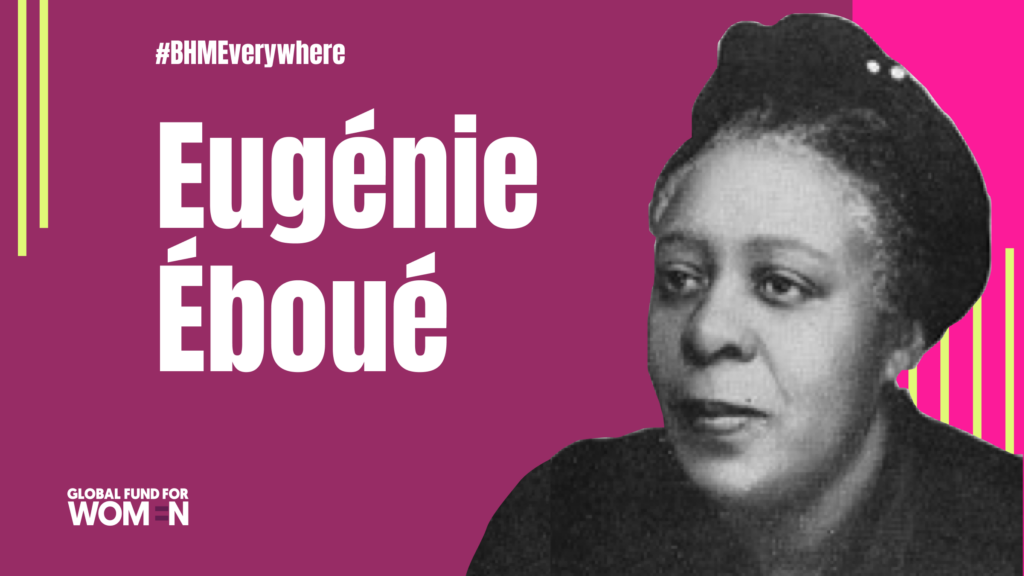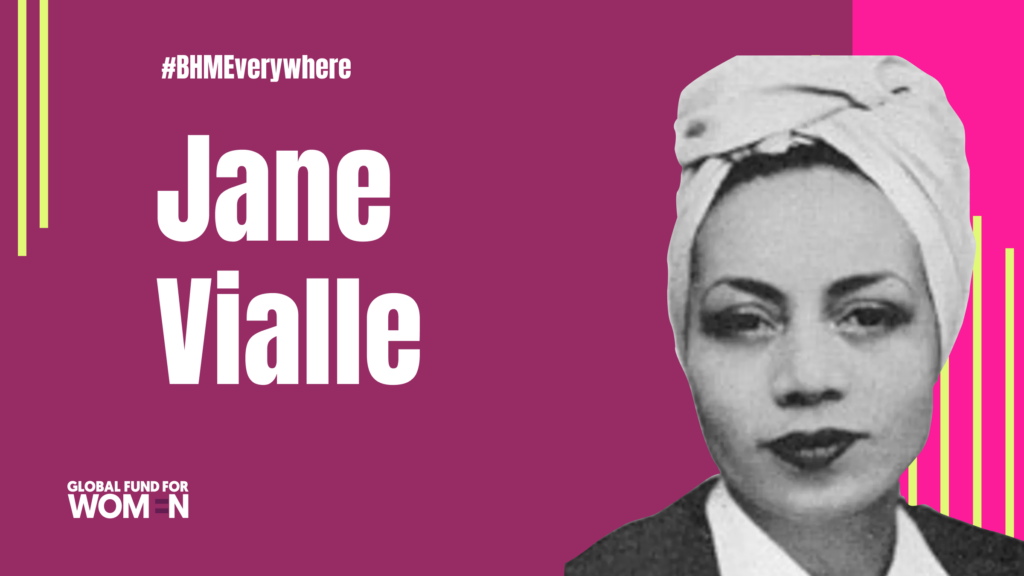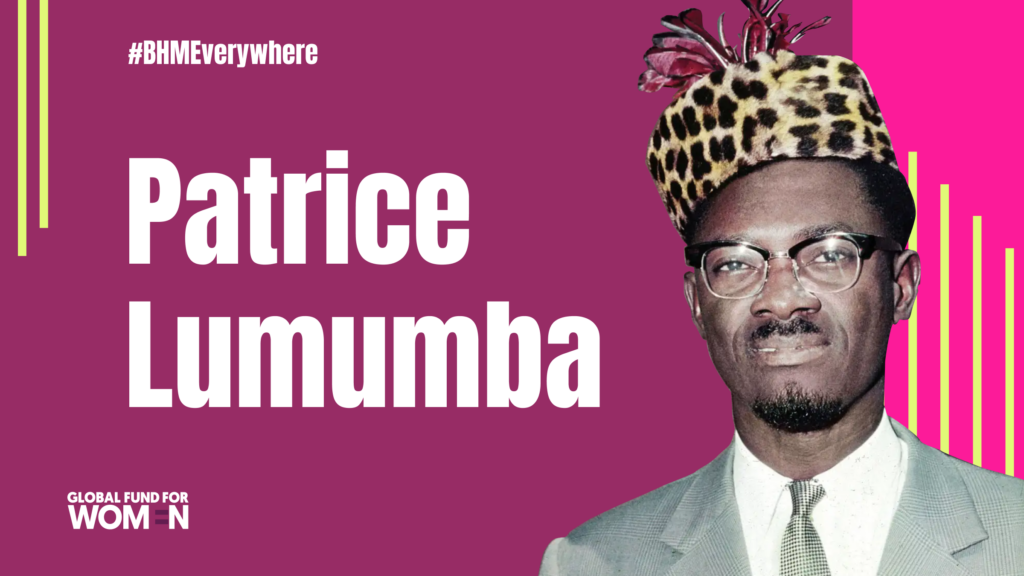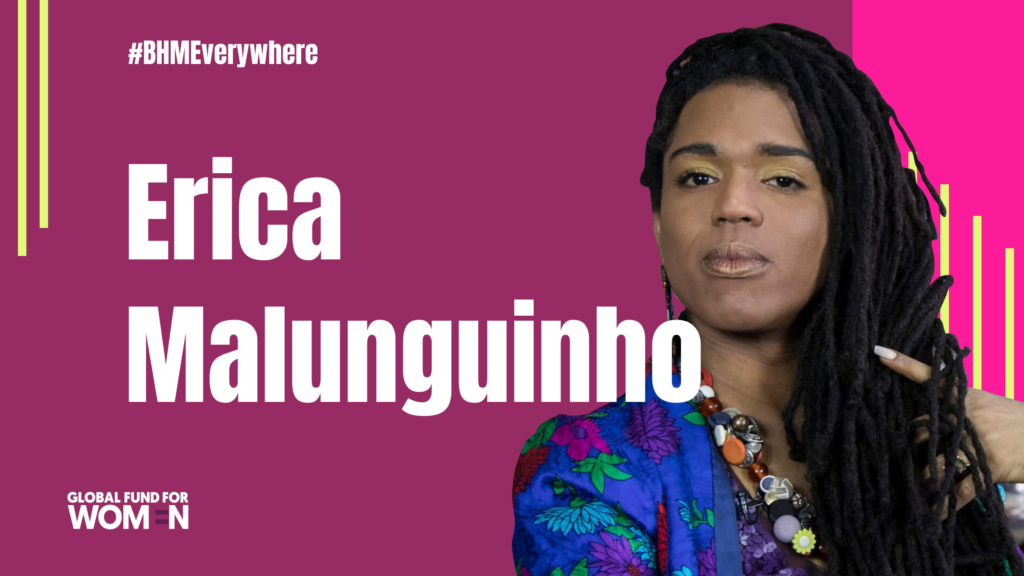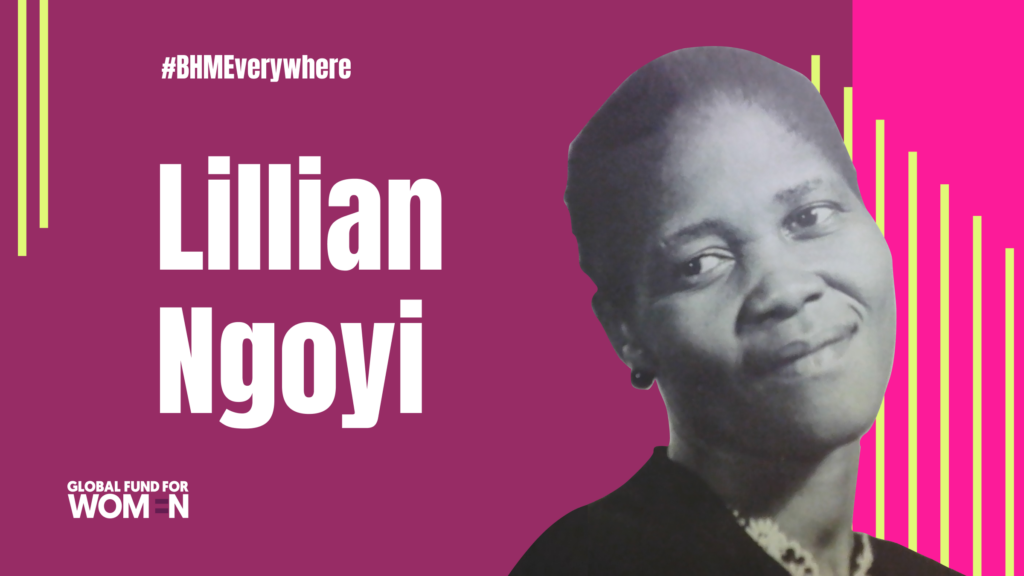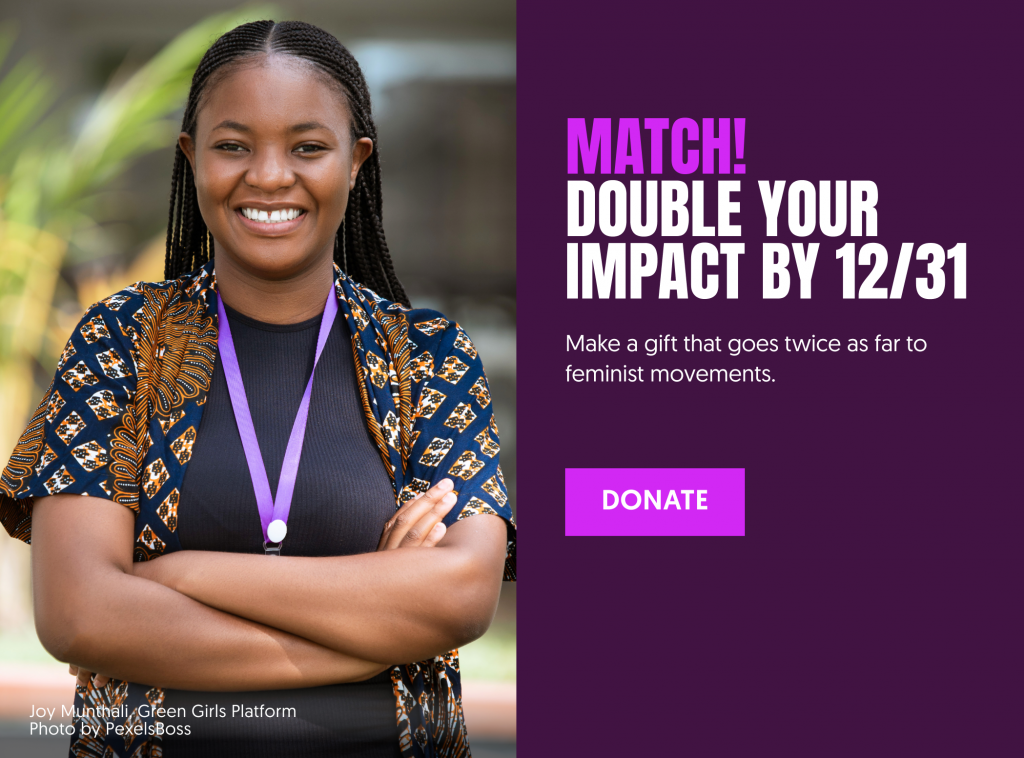2022: Black History Month Everywhere
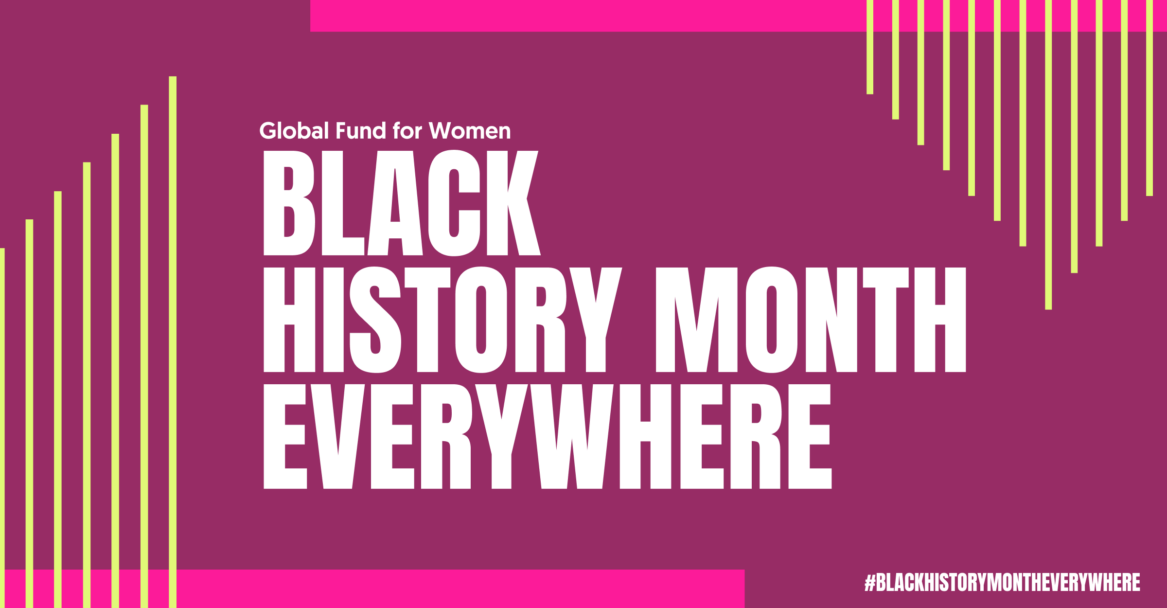
Black history doesn’t begin and end with the United States. And Women’s History Month isn’t the only time that gender justice organizations should be looking at the past. If we take the time to look, Black history, activism, and resistance are found across the globe. For Black History Month, Global Fund for Women will be celebrating Black leaders and organizations who see the African diaspora as the basis to build solidarity; who are guided by Pan-Africanism; and who fight to end patriarchy, imperialism, and colonialism. Follow #BHMEverywhere to learn more fascinating facts for Black History Month.
Black History Month Everywhere LEaders
Movement Leaders Advancing Racial Justice Every Day
Global Fund for Women recognizes and upholds the interconnectedness of movements working for racial and gender justice around the globe. Black lives matter across all borders—so Black History Month must be celebrated across borders as well. For February 2022, Global Fund for Women is turning the spotlight to movement leaders who center Black leadership and welcome the African diaspora as the basis to build solidarity. Read more below about organizations across the world who advance Black freedom, Black joy, and Black dignity every day.
Kisumu Feminist Society
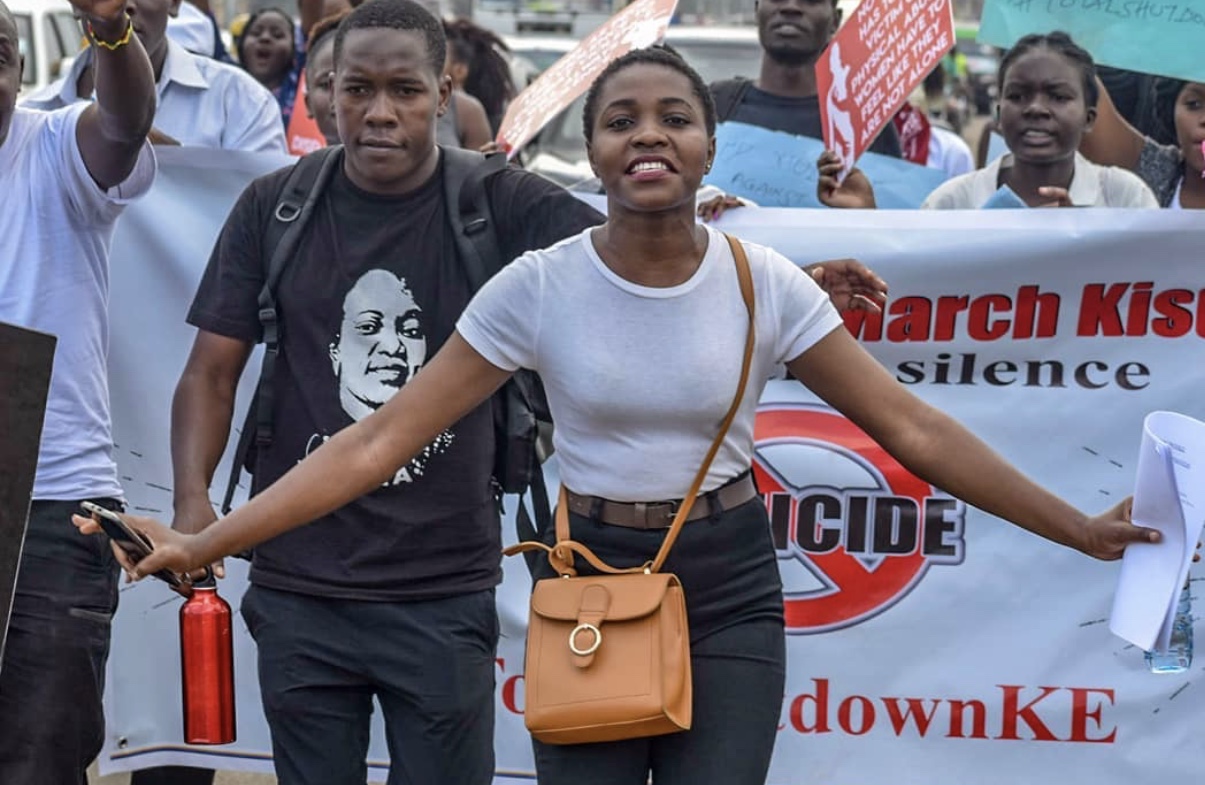
“[We are] re-defining feminism with African women’s views through celebration of African feminists in spaces that are inclusive, intersectional, and Afrocentric.”
Kisumu Feminist Society was founded in October 2018 by a group of young women from western Kenya who saw the need for an intersectional and inclusive feminist movement in the region. A queer-led organization, Kisumu Feminist Society provides a platform for cis and trans women; heterosexual and lesbian, bisexual, and queer women; and gender-nonconforming people from diverse backgrounds to advocate for the end of femicide and gender-based violence. Through projects like Humanizing Black Female Bodies, a digital campaign demanding that the Kenyan government recognize femicide as a national emergency, they uphold the dignity of African women irrespective of religion, sexuality, social status, or political affiliation. The campaign grew from mobiles phones to street protests, and was designed to support Black women who have had to fight to access their basic human rights.
Learn more about their work here and follow them on Twitter and Instagram.
Mano Amiga de la Costa Chica A.C.
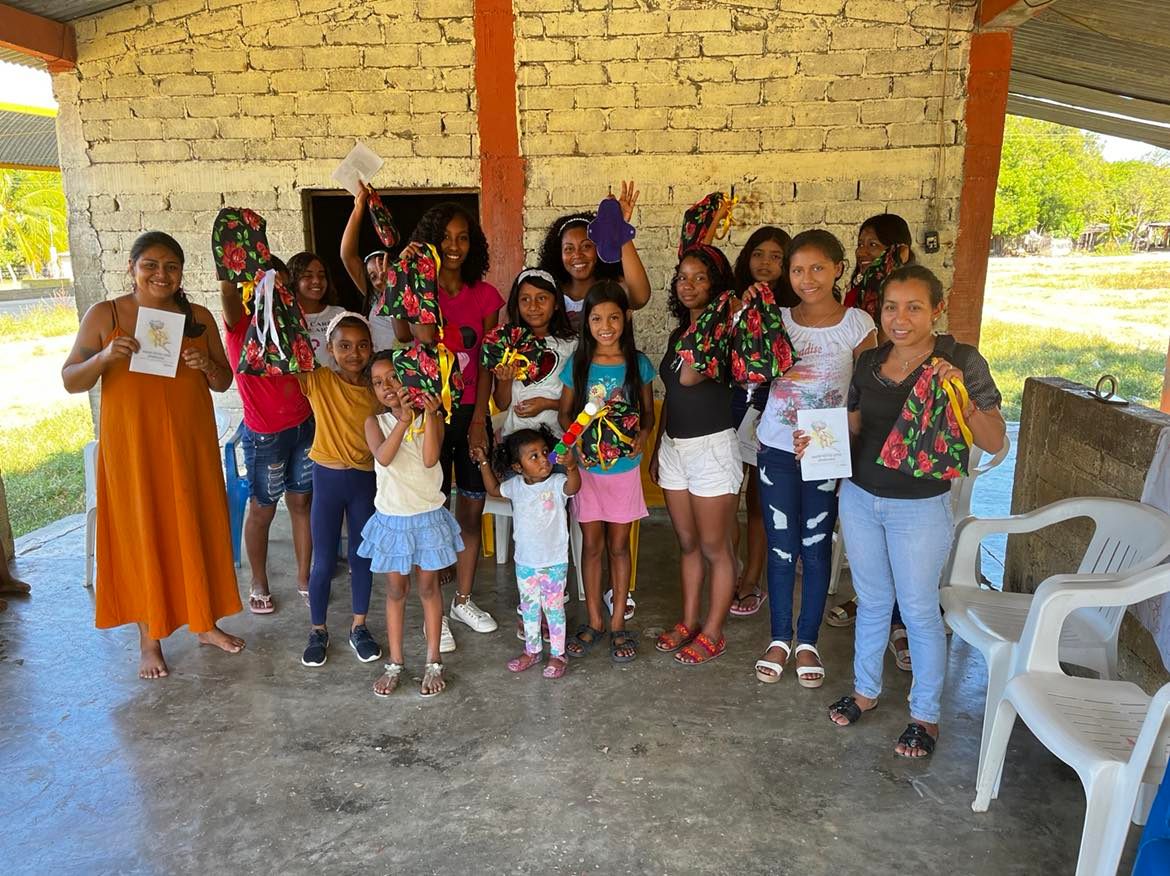
“Loving our Afro-Mexican bodies.”
Mano Amiga de la Costa Chica A.C. works to achieve a just, equitable, anti-racist society by generating public policies and offering education to support Afro-Mexican women, youth, and girls. With the goals of strengthening Afro-Mexican identity and helping build a support network of Afro-Mexican young women and girls, Mano Amiga de la Costa Chica A.C. organizes workshops in rural areas about menstrual awareness with an intercultural approach. These workshops focus on advocating for period equity, removing the stigma and taboos attached to periods, and dismantling stereotypes about Afro-Mexican identity.
Learn more about their work here.
ODARA—Instituto da Mulher Negra
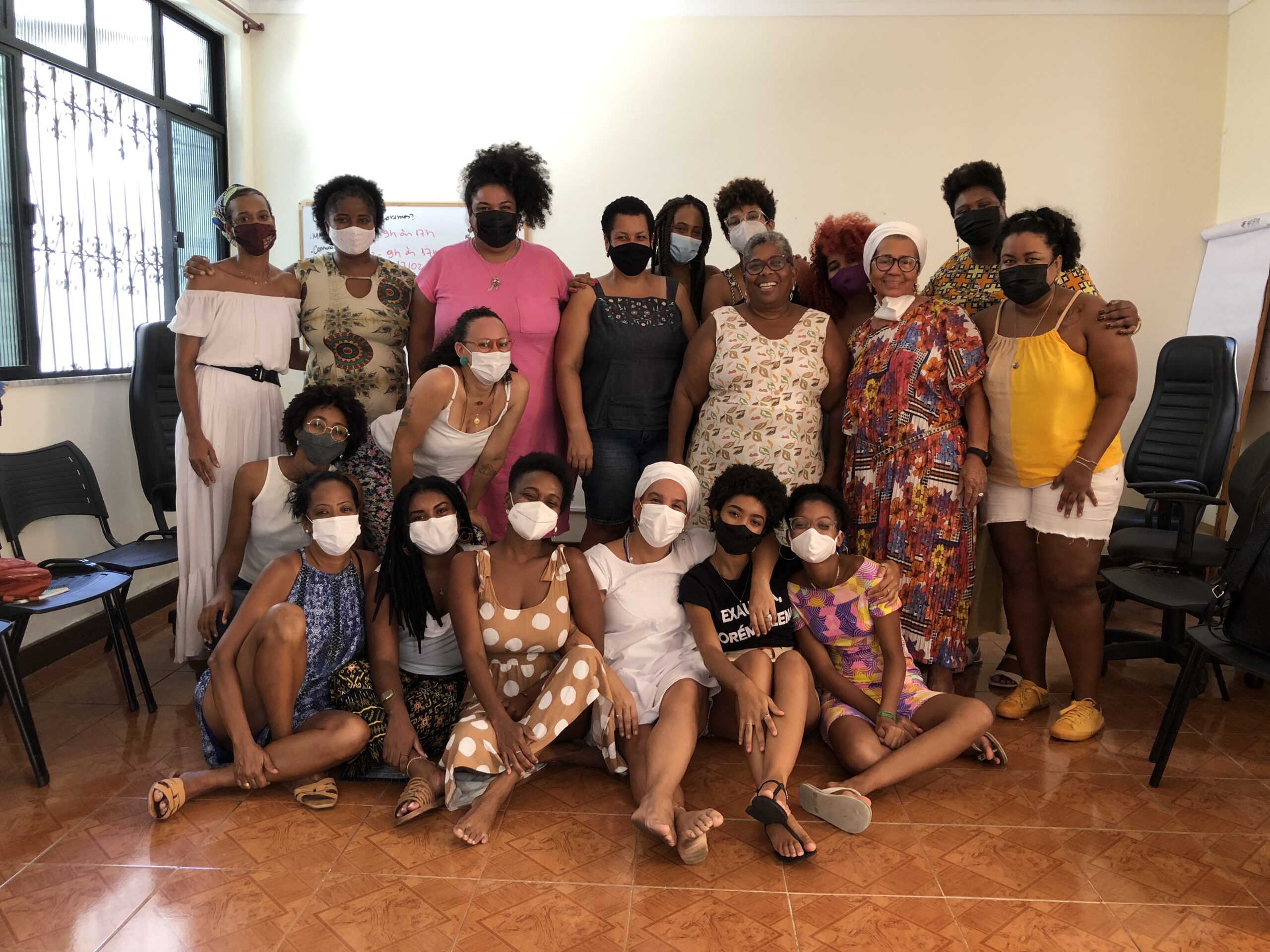
“Progress in establishing rights for the trans community has been slow. It’s not due to lack of organization, struggle, or resistance—it’s because transphobia is so deeply rooted in Brazilian institutions.”
ODARA—Instituto da Mulher Negra’s mission is to fight racism, sexism, lesbophobia, biphobia, transphobia, and related forms of oppression to defend the freedom, autonomy, and well-being of all Black women in Brazil.
ODARA sees the ongoing COVID-19 pandemic in Brazil as a type of structural violence and a human rights violation disproportionately affecting Black women. In 2020, they partnered with other local organizations in the state of Bahia for a justice and solidarity campaign to provide food, hygiene supplies, and personal protective equipment to 5,000 families. Also known for starting Julho das Pretas, a celebration of collective political action by Black women every July, ODARA created the network Rede de Mulheres Negras da Bahia in 2012 in northeast Brazil. The network aims to influence public policy, increase sociopolitical inclusion, and end discrimination and prejudice on an interpersonal and collective level.
Learn more about their work here and follow them on Twitter and Instagram.
Rede de Mulheres Negras do Paraná

“Women, especially Black women, hold intersecting identities that we must identify and recognize in full in order to fully protect each other from oppression.”
Rede de Mulheres Negras do Paraná aims to promote equality, equity, and comprehensive health care for Black women and other marginalized communities in southern Brazil.
By offering education about sexual and reproductive health, Rede de Mulheres Negras do Paraná works to deconstruct taboos around Black women's bodies. For example, some people think of menstruation as dirty, shameful, and impure. Rede de Mulheres Negras do Paraná works to change negative attitudes so that women can treat their own bodies well and have healthy sexual and reproductive lives. They provide trainings about hygiene, pregnancy, postpartum health, sex, contraceptive methods, preventing sexually transmitted infections, and much more.
Learn more about their work here and follow them on Facebook.
Criola
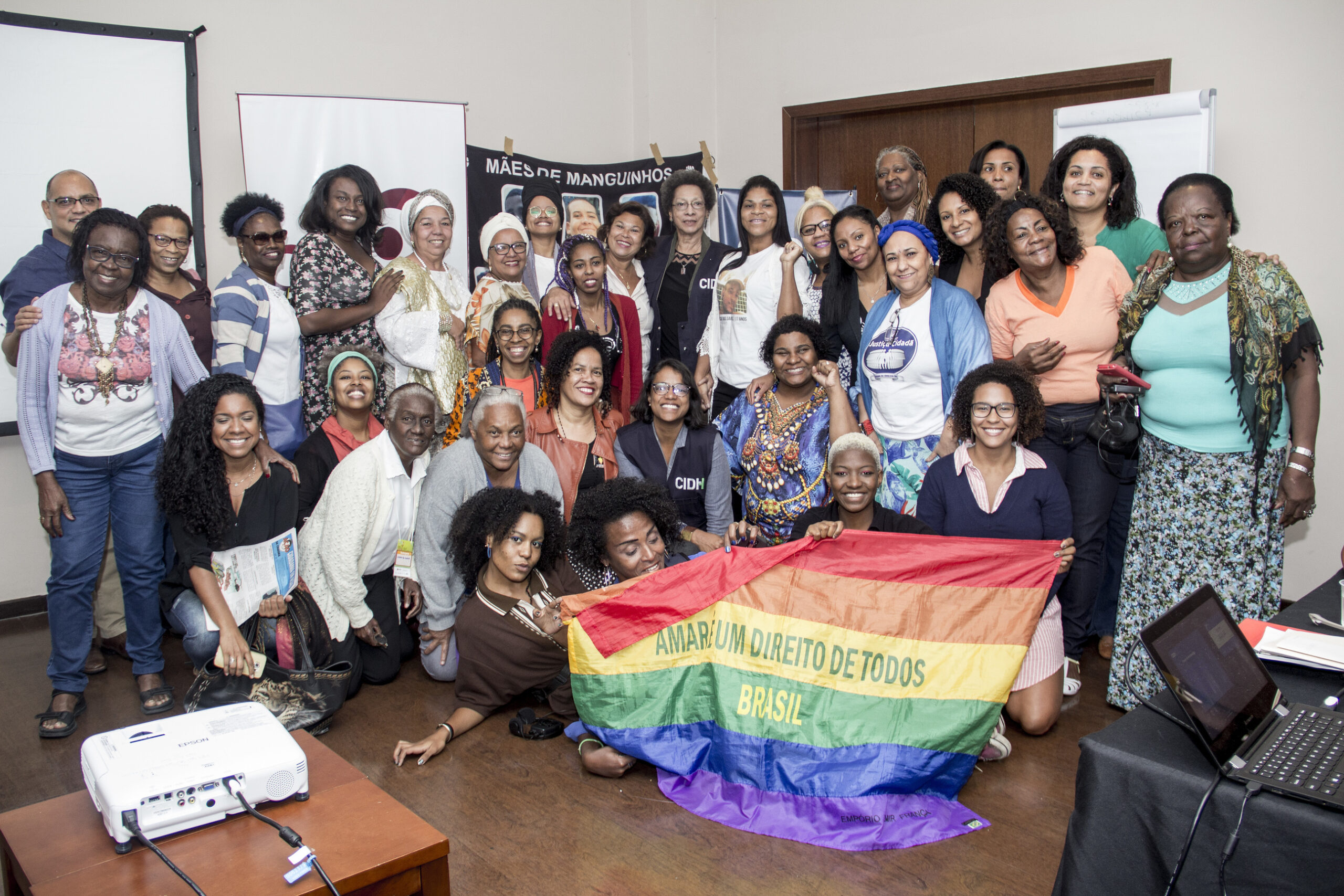
“The fight against racism in Brazil historically included a strong legacy of action by Black women, who built cultural and political traditions of resistance. They constitute our ancestry and present, as the organizations they built and promoted to face racism remain a strong support to Black communities today.”
Criola is a civil society organization with 30 years of experience defending and promoting the rights of Black women to build a society where the values of justice, equity, and solidarity are fundamental.
Criola affirms that the collective action of cis and trans Black women is essential to make good lives for all Brazilian society. Criola is dedicated to monitoring and defending the rights of Black women, especially at the crossroads of social justice and reproductive rights. During the COVID-19 pandemic, they have been strengthening care and protection networks for Black women activists through political advocacy and distributing food baskets.
Learn more about their work here and follow them on Twitter and Instagram.
Sinsonke
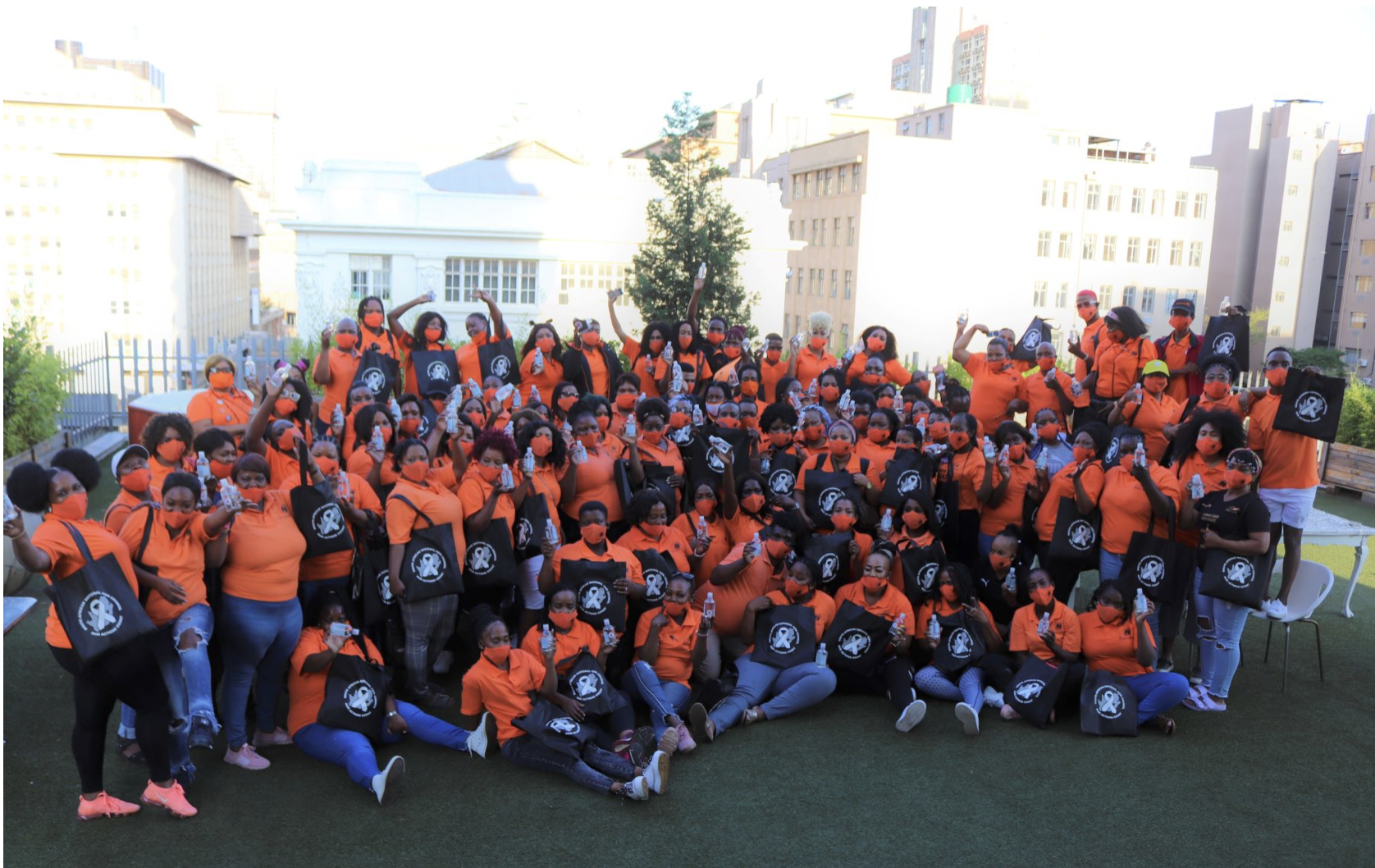
“There is no excuse not to decriminalize sex work in this day and age, especially when criminalization puts sex workers more at risk. I am one of those who are proud to say, my body, my business!”—Durban-based member of Sisonke
Sisonke, meaning “togetherness” in Zulu, is a movement formed by sex workers for sex workers. The organization was formed in 2003 to counter the abuse, isolation, and human rights violations that sex workers face in South Africa.
Sisonke is a sex worker-led nonprofit advocating for the decriminalization of consensual sex work in South Africa, working to eliminate human rights violations and guarantee sex workers an opportunity for full access to healthcare and equality before law. Their vision looks to a future South Africa that is trans inclusive, where sex work is recognized as work, and where sex workers are not labelled as criminals. Their campaigns for decriminalization also include advocacy to end gender-based violence and advocacy for economic justice.
Learn more about their work here and follow them on Twitter and Instagram.
Sources:
- Black History Heroes, http://www.blackhistoryheroes.com/2015/07/lillian-ngoyi-mother-of-black.html
- BlackPast, https://www.blackpast.org/global-african-history/primary-documents-global-african-history/patrice-lumumbas-letter-pauline-lumumba-1960/
- Keisha N. Blaine, https://www.aaihs.org/sold-to-africa/
- Aurora Ellis, https://www.huffpost.com/entry/erica-malunguinho-black-trans-brazil_n_5c7828b8e4b0952f89dfa406
- Kiritiana Freelon, https://afropunk.com/2018/10/trans-activist-erica-malunguinho-reps-black-brazil/
- Sean Jacobs, https://jacobinmag.com/2017/01/patrice-lumumba-congo-belgium-colonialism-murder
- Annette Joseph-Gabriel, https://www.aaihs.org/from-concentration-camps-to-the-senate-black-women-in-the-french-resistance/
- Annette Joseph-Gabriel, https://theconversation.com/hate-heaped-on-black-heroines-of-the-french-resistance-would-look-familiar-to-aoc-and-rashida-tlaib-113808
- Thomas Jean Lax, https://www.thenation.com/article/world/erica-malunguinho-interview/
- Charles Gimba Magha-A-Ngimba, https://roape.net/2021/01/17/patrice-lumumba-revolution-freedom-and-the-congo-today/
- South African History Archive, https://www.saha.org.za/women/national_womens_day.htm
- South African History Online, https://www.sahistory.org.za/people/lilian-masediba-ngoyi
